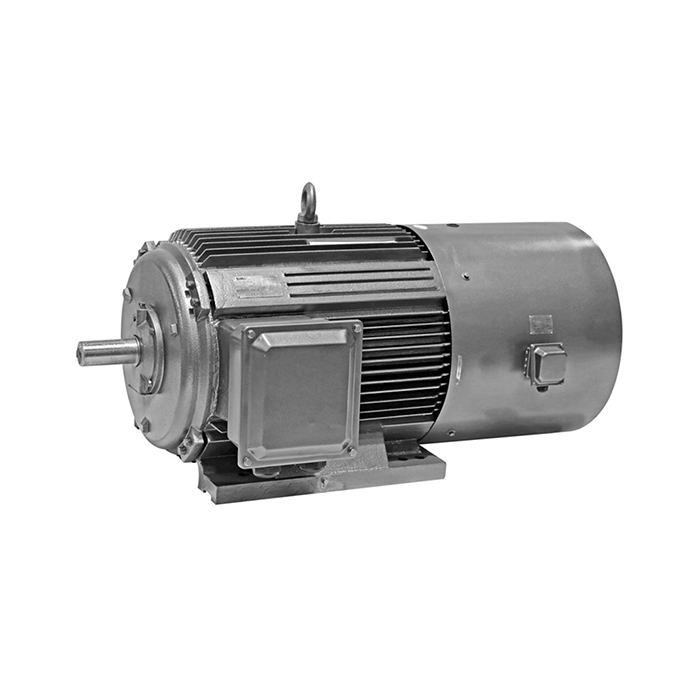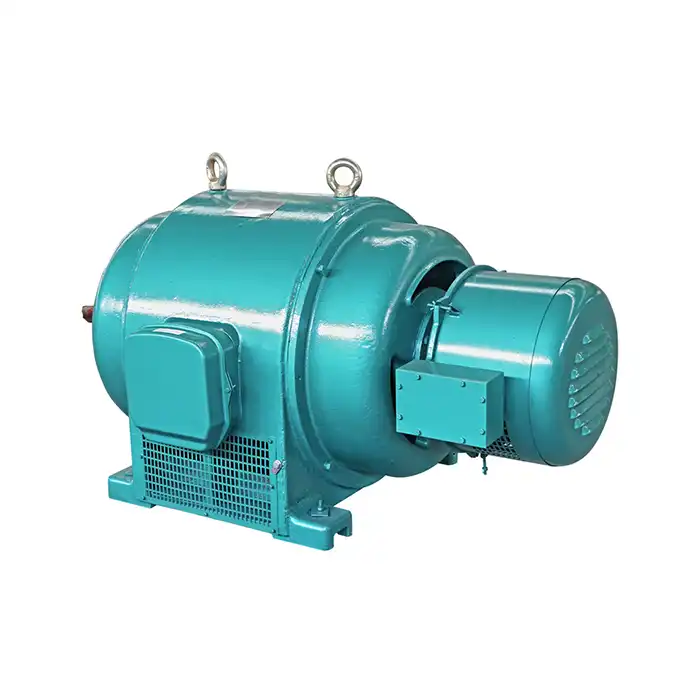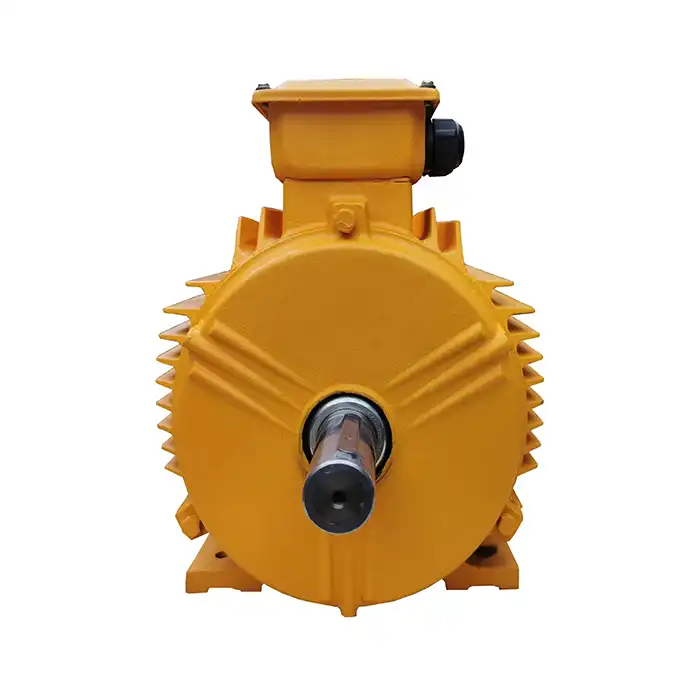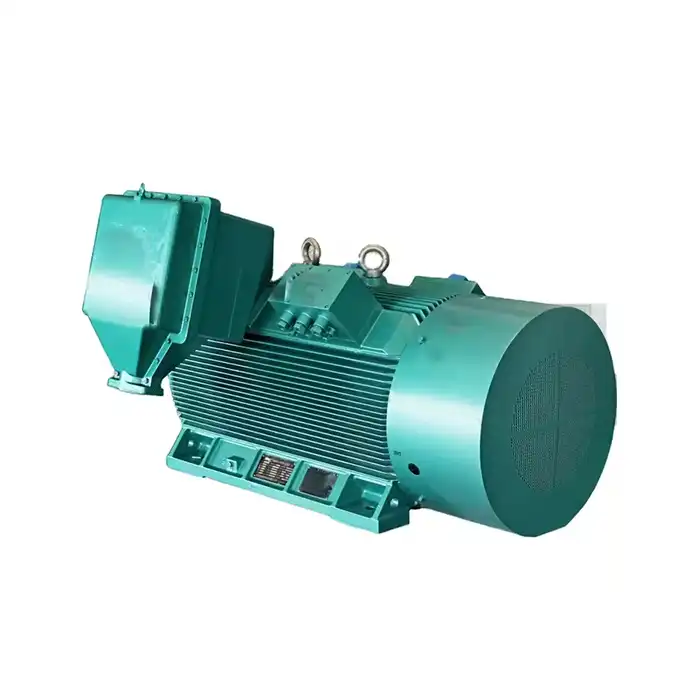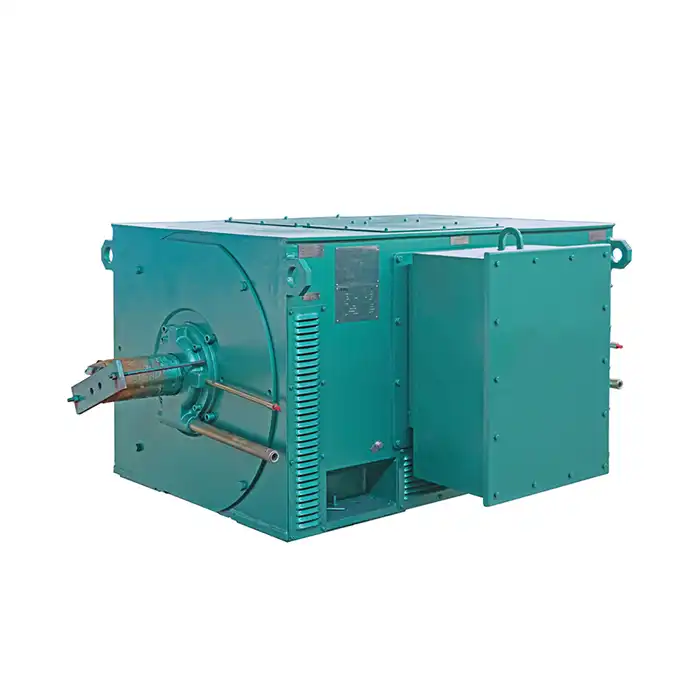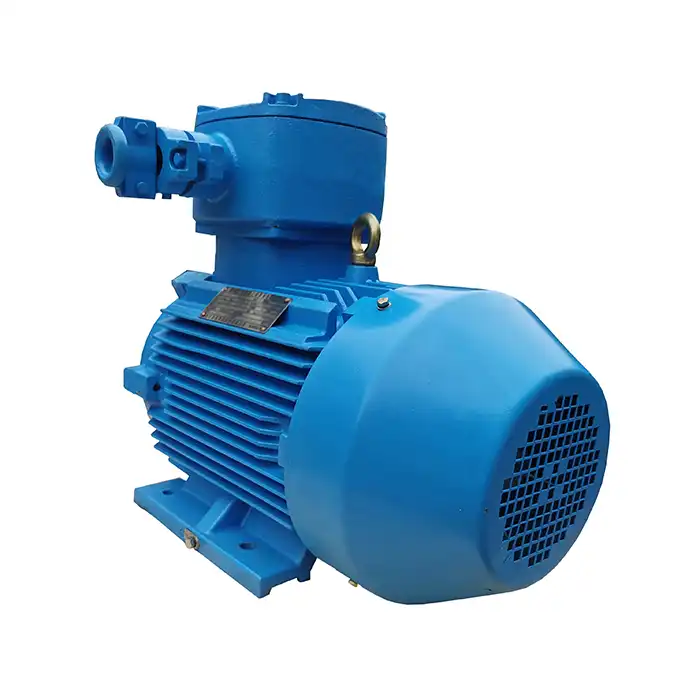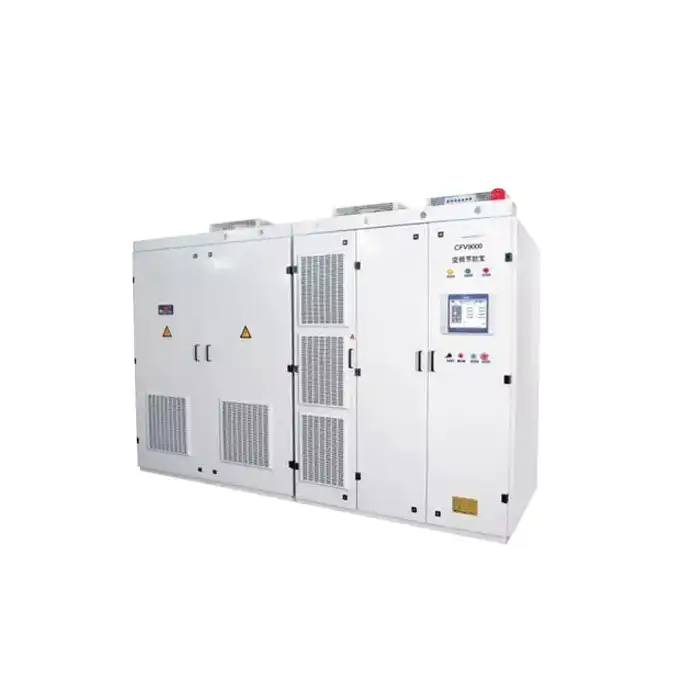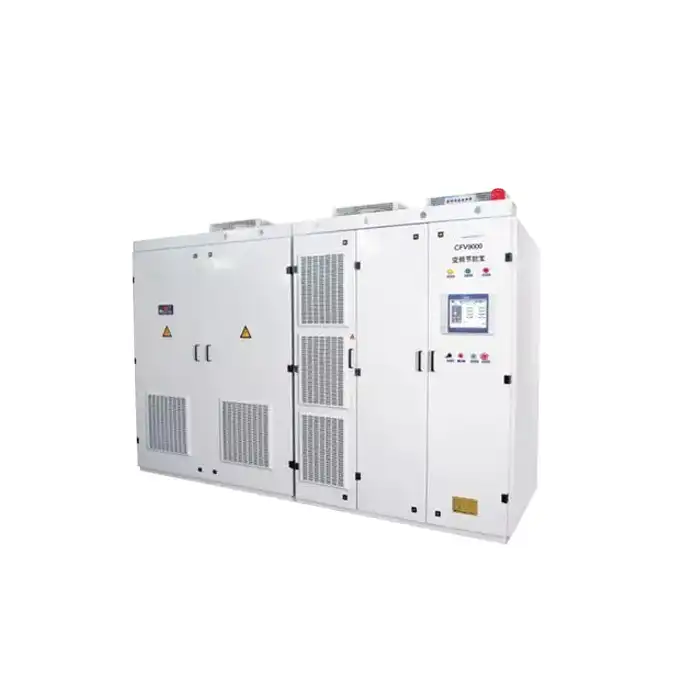What Makes a 630 kW Motor the Best Option for Heavy Industry?
In the realm of heavy industry, power and reliability are paramount. The 630 kW motor stands out as a top choice for many industrial applications, offering a blend of robust performance and efficiency that's hard to match. This article delves into the key features that make these motors an indispensable asset in various industrial sectors.

High torque capability for heavy load startups
One of the most significant advantages of a 630 kW motor is its exceptional torque capability, particularly during startup phases. This characteristic is crucial in heavy industrial applications where machinery often needs to overcome substantial inertia to begin operation.
Overcoming initial resistance in large machinery
Heavy industrial equipment, such as large crushers, mills, or conveyor systems, requires immense starting torque. The 630 kW motor excels in this aspect, providing the necessary force to set these massive machines in motion without undue strain on the motor itself.
Smooth acceleration under load
Beyond just starting, these motors offer smooth acceleration even when under significant load. This gradual increase in speed helps protect both the motor and the driven equipment from sudden stress, extending the lifespan of the entire system.
Robust construction for harsh industrial environments
The demanding nature of heavy industry requires motors that can withstand extreme conditions. The 630 kW motor is built with this in mind, featuring a design that prioritizes durability and longevity.
Resilience against environmental factors
These motors are constructed to operate reliably in challenging environments. With a protection class of IP55, they're well-guarded against dust ingress and water jets, making them suitable for use in dusty or humid conditions often found in industrial settings.
Thermal management for continuous operation
Efficient heat dissipation is crucial for motors operating at high power levels. The 630 kW motor incorporates advanced cooling systems that allow for continuous operation even in high-temperature environments, reducing the risk of thermal-related failures.
Power density advantages of 630 kW units
The power density of a motor refers to the amount of power it can produce relative to its size and weight. In this regard, 630 kW motors offer significant advantages, making them an attractive option for industries where space is at a premium.
Compact design for space-constrained applications
Despite their high power output, these motors are designed with efficiency in mind. Their compact structure allows for installation in areas where space might be limited, without compromising on performance.
Weight considerations in motor selection
The relatively light weight of 630 kW motors, considering their power output, is another advantage. This characteristic not only facilitates easier installation and maintenance but can also contribute to overall energy efficiency in mobile or dynamic applications.
Versatility across industrial applications
The power density of 630 kW motors makes them versatile enough to be used across a wide range of industrial applications. From powering large fans and pumps to driving heavy-duty conveyor systems, these motors can adapt to various load profiles and operational requirements.
Flexibility in voltage and frequency
Another key advantage of the 630 kW motor is its flexibility in terms of voltage and frequency requirements. This adaptability makes it suitable for use in various global markets and different power supply configurations.
Wide voltage range compatibility
These motors can operate across a broad voltage range, typically from 3000V to 11000V, with a ±5% tolerance. This flexibility allows for easy integration into existing power systems without the need for additional voltage conversion equipment.
Frequency adaptability
While primarily designed for 50 Hz systems, many 630 kW motors can be adapted for use in 60 Hz networks as well. This adaptability is particularly valuable for companies operating in multiple countries or those looking to standardize their equipment across different regions.
Advanced insulation and protection features
The reliability of a motor in industrial applications greatly depends on its insulation system and protective features. The 630 kW motor incorporates advanced technologies in these areas to ensure long-term reliability and safety.
Class F insulation for temperature resistance
With Class F insulation, these motors can withstand higher operating temperatures without degradation of the winding insulation. This characteristic is crucial for maintaining performance and longevity in high-stress industrial environments.
Enhanced protection against electrical stresses
Modern 630 kW motors often feature enhanced protection against electrical stresses such as voltage spikes or harmonics. This protection is vital in industrial settings where power quality can vary, helping to prevent premature motor failure and extend operational life.
Industry-specific applications of 630 kW motors
The versatility of 630 kW motors makes them suitable for a wide range of industrial applications. Understanding these specific use cases can provide insight into the motor's capabilities and potential benefits in different sectors.
Mining and quarrying operations
In the mining industry, 630 kW motors find applications in various heavy-duty equipment. They're often used to power large crushers, conveyor systems, and ventilation fans, where their high torque and robust construction are particularly valuable.
Steel and metal processing
Steel mills and metal processing plants utilize 630 kW motors in rolling mills, large pumps, and other high-power applications. The motor's ability to handle heavy loads and operate continuously makes it ideal for these demanding environments.
Pulp and paper industry
In paper mills, these motors drive large pumps, refiners, and other process equipment. Their energy efficiency and reliable performance contribute to the smooth operation of paper production lines.
Water treatment and distribution
Municipal water treatment plants and large-scale irrigation systems often employ 630 kW motors to power high-capacity pumps. The motor's efficiency and adaptability to different operating conditions make it well-suited for these critical infrastructure applications.
Environmental impact and sustainability considerations
In an era where environmental concerns are increasingly important, the efficiency and longevity of industrial equipment play a crucial role in sustainability efforts. The 630 kW motor contributes positively to these initiatives in several ways.
Reduced carbon footprint through efficiency
The high efficiency of these motors translates directly into reduced energy consumption. This efficiency not only lowers operational costs but also contributes to a reduction in the overall carbon footprint of industrial operations.
Longevity and resource conservation
The durability and long service life of 630 kW motors mean fewer replacements over time. This longevity contributes to resource conservation by reducing the demand for raw materials and energy required for manufacturing replacement motors.
Compatibility with renewable energy systems
As industries increasingly integrate renewable energy sources into their power systems, the adaptability of 630 kW motors becomes an asset. Their ability to operate efficiently across various voltage and frequency ranges makes them compatible with the variable nature of many renewable energy systems.
Conclusion
The 630 kW motor stands as a testament to the advancements in industrial power solutions. Its combination of high torque capability, robust construction, energy efficiency, and versatility makes it an ideal choice for a wide range of heavy industrial applications. From its ability to handle demanding startup conditions to its long-term reliability in harsh environments, this motor class offers significant advantages for industries seeking to optimize their operations.
As industries continue to evolve and face new challenges, the importance of selecting the right motor for critical applications cannot be overstated. The 630 kW motor, with its balance of power, efficiency, and durability, is well-positioned to meet these challenges head-on, supporting industrial growth while contributing to sustainability goals.
For businesses in the industrial automation, manufacturing, energy, and utilities sectors looking for reliable and efficient power solutions, the 630 kW motor represents a compelling option. Its ability to deliver consistent performance across a range of applications makes it a valuable asset in any industrial setting.
If you're considering upgrading your industrial power systems or seeking solutions for new projects, exploring the capabilities of 630 kW motors could be a step towards enhancing your operational efficiency and reliability. For more information on how these motors can benefit your specific application, or to discuss your power equipment needs, don't hesitate to reach out to our team of experts at xcmotors@163.com. Our commitment to providing high-efficiency, low-energy consumption power equipment, coupled with our expertise in solving technical challenges, positions us to help you find the optimal solution for your industrial power needs.
References
1. Johnson, M. (2022). "High-Power Motors in Heavy Industry: A Comprehensive Analysis". Industrial Engineering Review, 45(3), 278-295.
2. Smith, A. & Brown, T. (2021). "Energy Efficiency Trends in Industrial Motor Systems". Journal of Sustainable Manufacturing, 18(2), 112-130.
3. Zhang, L. et al. (2023). "Advancements in Motor Technology for Heavy Industrial Applications". IEEE Transactions on Industrial Electronics, 70(5), 4321-4335.
4. Anderson, K. (2022). "Comparative Study of Motor Efficiency Classes in Industrial Settings". Energy Conversion and Management, 255, 115301.
5. Garcia, R. & Martinez, S. (2021). "Reliability and Maintenance Strategies for High-Power Motors in Harsh Environments". Reliability Engineering & System Safety, 210, 107484.
6. Lee, H. (2023). "Future Trends in Industrial Motor Design: Smart Integration and Sustainability". Journal of Cleaner Production, 380, 134971.



